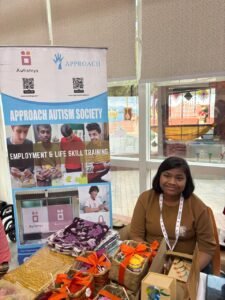Embracing Neurodiversity: Unlocking the Potential of Autism
Understanding Autism
Autism, also known as Autism Spectrum Disorder (ASD), is a neurological difference that affects communication, social interaction, and behavior. It’s a spectrum, meaning each individual experiences autism uniquely. With proper support and acceptance, autistic individuals can thrive and contribute significantly to society.
The Importance of Early Intervention
Early intervention is crucial in helping autistic children develop essential life skills and reach their full potential. Programs like Applied Behavior Analysis (ABA) therapy and speech therapy can significantly improve communication, social skills, and adaptive behaviors. Early intervention sets the stage for future success and independence.
Life Skill Training: Empowering Autistic Individuals
Life skill training is vital for autistic individuals to navigate everyday life confidently. This training focuses on practical skills like self-care, time management, and problem-solving. By mastering these skills, autistic individuals can live independently, make informed decisions, and build fulfilling relationships.
Work Readiness: Unlocking Employment Opportunities
Work readiness programs prepare autistic individuals for the workforce, addressing challenges like social interactions, sensory issues, and executive functioning. These programs foster a smooth transition into employment, enabling autistic individuals to showcase their unique strengths and skills.
Embracing Neurodiversity in the Workplace
Employers can play a vital role in supporting autistic employees by creating inclusive work environments. This includes offering accommodations like flexible work arrangements, sensory-friendly spaces, and clear communication. By embracing neurodiversity, businesses can tap into the innovative thinking, attention to detail, and creativity that autistic individuals bring to the table.
Conclusion
Autistic individuals have immense potential, and with the right support, they can achieve greatness. By prioritizing early intervention, life skill training, and work readiness, we can empower autistic individuals to lead fulfilling lives and contribute meaningfully to society. Let’s embrace neurodiversity and create a more inclusive world for all.





Comments (3)
tlover tonet
You are a very bright person!
binance註冊獎金
Your point of view caught my eye and was very interesting. Thanks. I have a question for you.
Approach
Sure, you can ask, I would love to give an answer